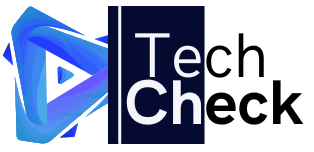Want to unlock the secrets to building a thriving remote team and skyrocket your startup's success? Get ready to ditch the 9-to-5 grind and embrace the power of remote collaboration! In today's dynamic business landscape, building a high-performing remote team is no longer a luxury—it's a necessity. This comprehensive guide will equip you with the best practices to not only build but also nurture a remote team that drives innovation and achieves remarkable results. We'll delve into the essential strategies for success, from selecting the right talent to fostering a strong sense of community and boosting productivity. Prepare to transform your startup's trajectory with a remote team that works smarter, not harder!
Finding and Hiring Top-Tier Remote Talent
Building a successful remote team starts with identifying and hiring the right individuals. This isn't just about finding skilled workers; it's about finding people who thrive in a remote environment. Consider these key factors:
Skills and Experience: The Foundation of Success
When hiring for remote positions, don't compromise on skills and experience. Ensure candidates possess the technical abilities and professional experience needed to excel in their roles. Conduct thorough interviews and assessments to verify their qualifications. Look for evidence of past successes and the ability to independently manage projects.
Cultural Fit: More Than Just Skills
Cultural fit is paramount for a cohesive remote team. Look for individuals who are self-motivated, possess excellent communication skills, and can work independently. Evaluate their ability to contribute positively to a virtual team environment. Tools like online personality assessments can help in this process, providing insights into individual work styles and team dynamics.
Communication and Collaboration Prowess
Effective communication is the lifeblood of any remote team. During the interview process, assess candidates' communication styles and their proficiency in using various communication tools (Slack, Zoom, project management software). Prior experience collaborating on remote projects is a major plus.
Tech Savviness: Mastering Remote Work Tools
Ensure candidates are comfortable using various technologies and platforms necessary for remote work. This includes video conferencing software, project management tools, and communication apps. Assess their adaptability to new technologies and their willingness to embrace digital collaboration.
Building a Strong Remote Team Culture
Creating a vibrant and supportive remote team culture is crucial for sustained success. Consider these strategies:
Fostering Communication and Transparency
Maintain open and honest communication channels. Regular team meetings, both formal and informal, are essential. Utilize project management software for task assignments, progress updates, and seamless collaboration. Promote a culture of transparency by sharing company updates and acknowledging individual contributions.
Building Trust and Rapport
Building trust among team members is crucial in a remote setting where face-to-face interaction is limited. Encourage team-building activities, both online and offline. Organize virtual social events, team lunches, or online games to facilitate interaction and strengthen relationships.
Promoting Work-Life Balance
Emphasize the importance of work-life balance for your remote team. Encourage employees to set boundaries between work and personal life. Promote flexible work arrangements and discourage excessive overtime. Provide resources and support for employee well-being.
Leveraging Technology for Enhanced Collaboration
Utilize collaborative tools and platforms to enhance productivity and teamwork. Project management software helps streamline workflows, while communication tools facilitate efficient information sharing. Consider using team-building apps to encourage social interaction and engagement. Regular check-ins ensure projects remain on track and everyone feels connected and supported.
Boosting Productivity and Efficiency in a Remote Setting
Productivity is vital for any team, but especially for remote teams. Focus on these key areas:
Clear Goals and Expectations: Setting the Stage for Success
Clearly define roles, responsibilities, and individual goals. Ensure each team member understands their contributions to the overall project objectives. Regular progress checks are essential for staying on track and addressing challenges promptly. Use of SMART goals (Specific, Measurable, Achievable, Relevant, Time-bound) will be very beneficial.
Project Management Tools: Streamlining Workflows
Invest in robust project management software to streamline workflows and improve task visibility. Choose tools that allow for real-time collaboration, task assignment, progress tracking, and communication. Popular options include Asana, Trello, Monday.com, and Jira. Implementing these will lead to efficiency improvements.
Regular Communication and Feedback: Maintaining Momentum
Regular check-ins, virtual team meetings, and constructive feedback are vital for maintaining momentum. Encourage open dialogue and address challenges proactively. Provide timely feedback on performance, both positive and constructive, to help team members improve and stay motivated.
Flexible Work Arrangements: Empowering Autonomy
Offer flexible work arrangements to accommodate individual needs and preferences. This approach can boost morale and improve overall productivity. Trust your remote team members to manage their time effectively and focus on outcomes rather than micromanaging their daily schedules. This approach fosters ownership and increases the feeling of trust among the team members.
Continuous Improvement: Optimizing Your Remote Team Strategy
The journey of building and managing a successful remote team is ongoing. Regularly assess your processes, seek feedback from your team, and adapt your strategies as needed. Continuous improvement is key to unlocking the full potential of your remote team. Analyze metrics, gather input from team members, and make necessary adjustments. This continuous improvement process guarantees adaptability and sustained growth.
Ready to take your startup to the next level with a high-performing remote team? Start implementing these best practices today and watch your success soar!








